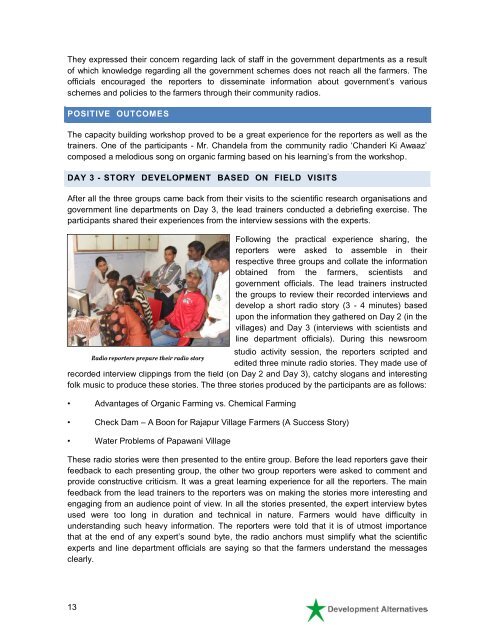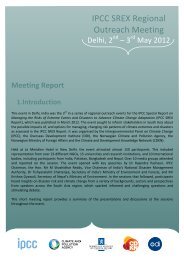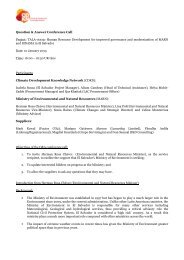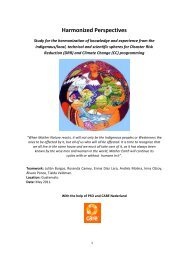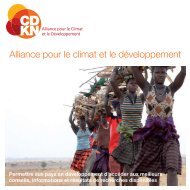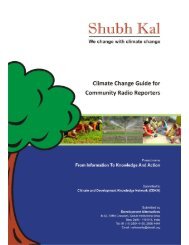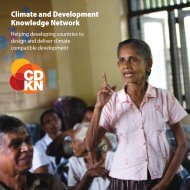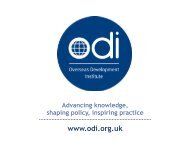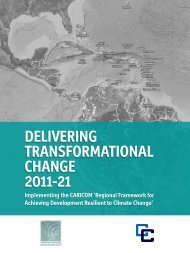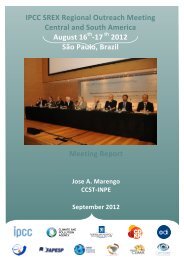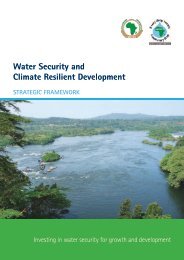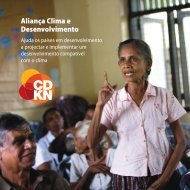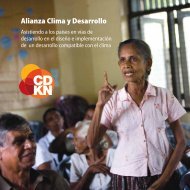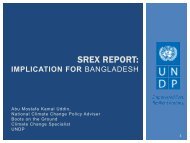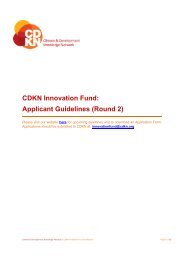Capacity Building Workshop Report - CDKN Global
Capacity Building Workshop Report - CDKN Global
Capacity Building Workshop Report - CDKN Global
Create successful ePaper yourself
Turn your PDF publications into a flip-book with our unique Google optimized e-Paper software.
They expressed their concern regarding lack of staff in the government departments as a result<br />
of which knowledge regarding all the government schemes does not reach all the farmers. The<br />
officials encouraged the reporters to disseminate information about government’s various<br />
schemes and policies to the farmers through their community radios.<br />
POSITIVE OUTCOMES<br />
The capacity building workshop proved to be a great experience for the reporters as well as the<br />
trainers. One of the participants - Mr. Chandela from the community radio ‘Chanderi Ki Awaaz’<br />
composed a melodious song on organic farming based on his learning’s from the workshop.<br />
DAY 3 - STORY DEVELOPMENT BASED ON FIELD VISITS<br />
After all the three groups came back from their visits to the scientific research organisations and<br />
government line departments on Day 3, the lead trainers conducted a debriefing exercise. The<br />
participants shared their experiences from the interview sessions with the experts.<br />
Following the practical experience sharing, the<br />
reporters were asked to assemble in their<br />
respective three groups and collate the information<br />
obtained from the farmers, scientists and<br />
government officials. The lead trainers instructed<br />
the groups to review their recorded interviews and<br />
develop a short radio story (3 - 4 minutes) based<br />
upon the information they gathered on Day 2 (in the<br />
villages) and Day 3 (interviews with scientists and<br />
line department officials). During this newsroom<br />
studio activity session, the reporters scripted and<br />
Radio reporters prepare their radio story<br />
edited three minute radio stories. They made use of<br />
recorded interview clippings from the field (on Day 2 and Day 3), catchy slogans and interesting<br />
folk music to produce these stories. The three stories produced by the participants are as follows:<br />
• Advantages of Organic Farming vs. Chemical Farming<br />
• Check Dam – A Boon for Rajapur Village Farmers (A Success Story)<br />
• Water Problems of Papawani Village<br />
These radio stories were then presented to the entire group. Before the lead reporters gave their<br />
feedback to each presenting group, the other two group reporters were asked to comment and<br />
provide constructive criticism. It was a great learning experience for all the reporters. The main<br />
feedback from the lead trainers to the reporters was on making the stories more interesting and<br />
engaging from an audience point of view. In all the stories presented, the expert interview bytes<br />
used were too long in duration and technical in nature. Farmers would have difficulty in<br />
understanding such heavy information. The reporters were told that it is of utmost importance<br />
that at the end of any expert’s sound byte, the radio anchors must simplify what the scientific<br />
experts and line department officials are saying so that the farmers understand the messages<br />
clearly.<br />
13


